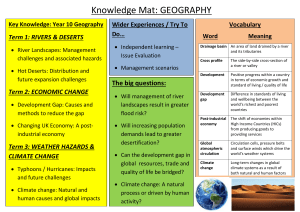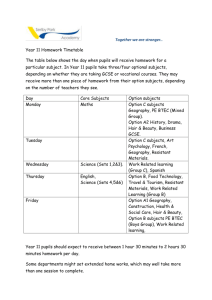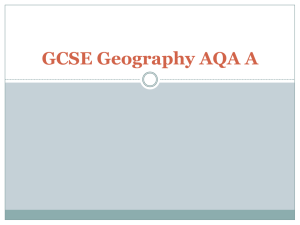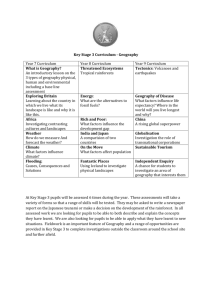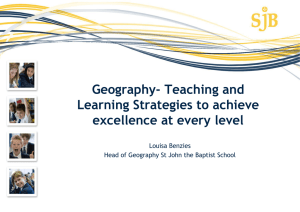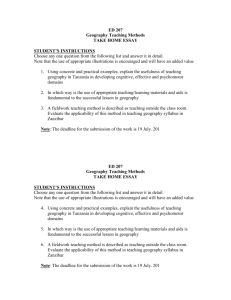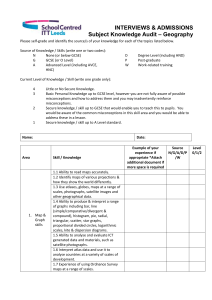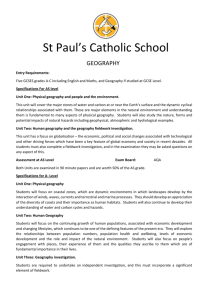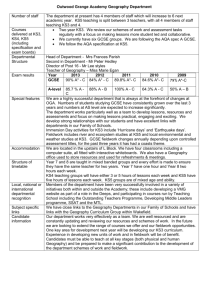Geography
advertisement
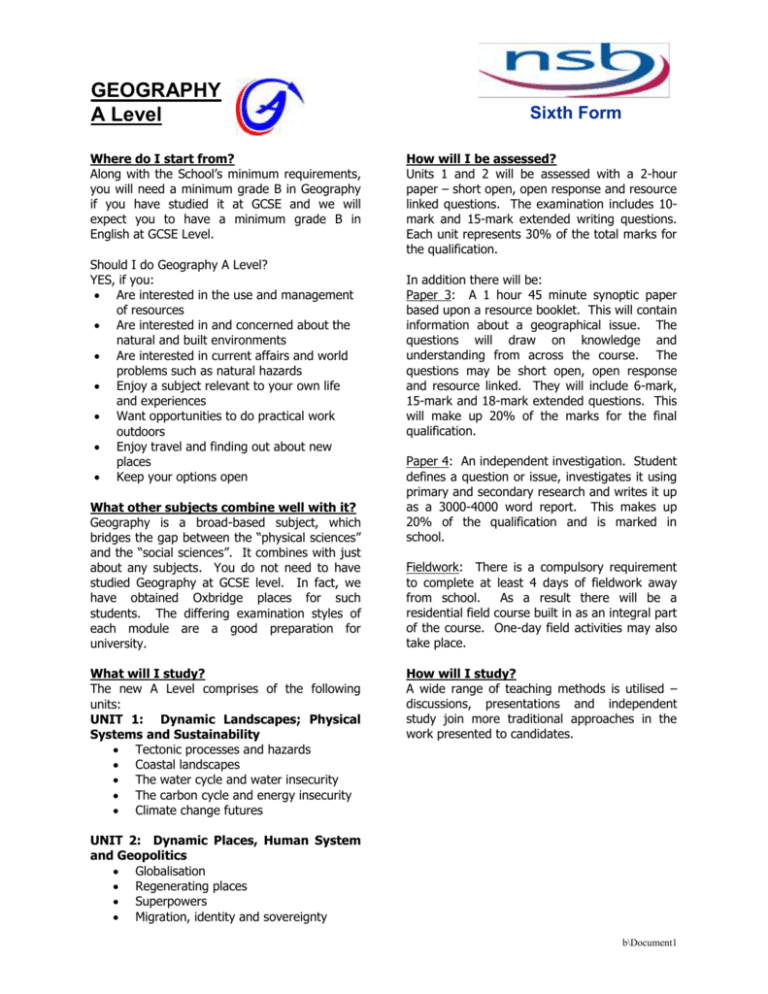
GEOGRAPHY A Level Where do I start from? Along with the School’s minimum requirements, you will need a minimum grade B in Geography if you have studied it at GCSE and we will expect you to have a minimum grade B in English at GCSE Level. Should I do Geography A Level? YES, if you: Are interested in the use and management of resources Are interested in and concerned about the natural and built environments Are interested in current affairs and world problems such as natural hazards Enjoy a subject relevant to your own life and experiences Want opportunities to do practical work outdoors Enjoy travel and finding out about new places Keep your options open What other subjects combine well with it? Geography is a broad-based subject, which bridges the gap between the “physical sciences” and the “social sciences”. It combines with just about any subjects. You do not need to have studied Geography at GCSE level. In fact, we have obtained Oxbridge places for such students. The differing examination styles of each module are a good preparation for university. What will I study? The new A Level comprises of the following units: UNIT 1: Dynamic Landscapes; Physical Systems and Sustainability Tectonic processes and hazards Coastal landscapes The water cycle and water insecurity The carbon cycle and energy insecurity Climate change futures Sixth Form How will I be assessed? Units 1 and 2 will be assessed with a 2-hour paper – short open, open response and resource linked questions. The examination includes 10mark and 15-mark extended writing questions. Each unit represents 30% of the total marks for the qualification. In addition there will be: Paper 3: A 1 hour 45 minute synoptic paper based upon a resource booklet. This will contain information about a geographical issue. The questions will draw on knowledge and understanding from across the course. The questions may be short open, open response and resource linked. They will include 6-mark, 15-mark and 18-mark extended questions. This will make up 20% of the marks for the final qualification. Paper 4: An independent investigation. Student defines a question or issue, investigates it using primary and secondary research and writes it up as a 3000-4000 word report. This makes up 20% of the qualification and is marked in school. Fieldwork: There is a compulsory requirement to complete at least 4 days of fieldwork away from school. As a result there will be a residential field course built in as an integral part of the course. One-day field activities may also take place. How will I study? A wide range of teaching methods is utilised – discussions, presentations and independent study join more traditional approaches in the work presented to candidates. UNIT 2: Dynamic Places, Human System and Geopolitics Globalisation Regenerating places Superpowers Migration, identity and sovereignty b\Document1
